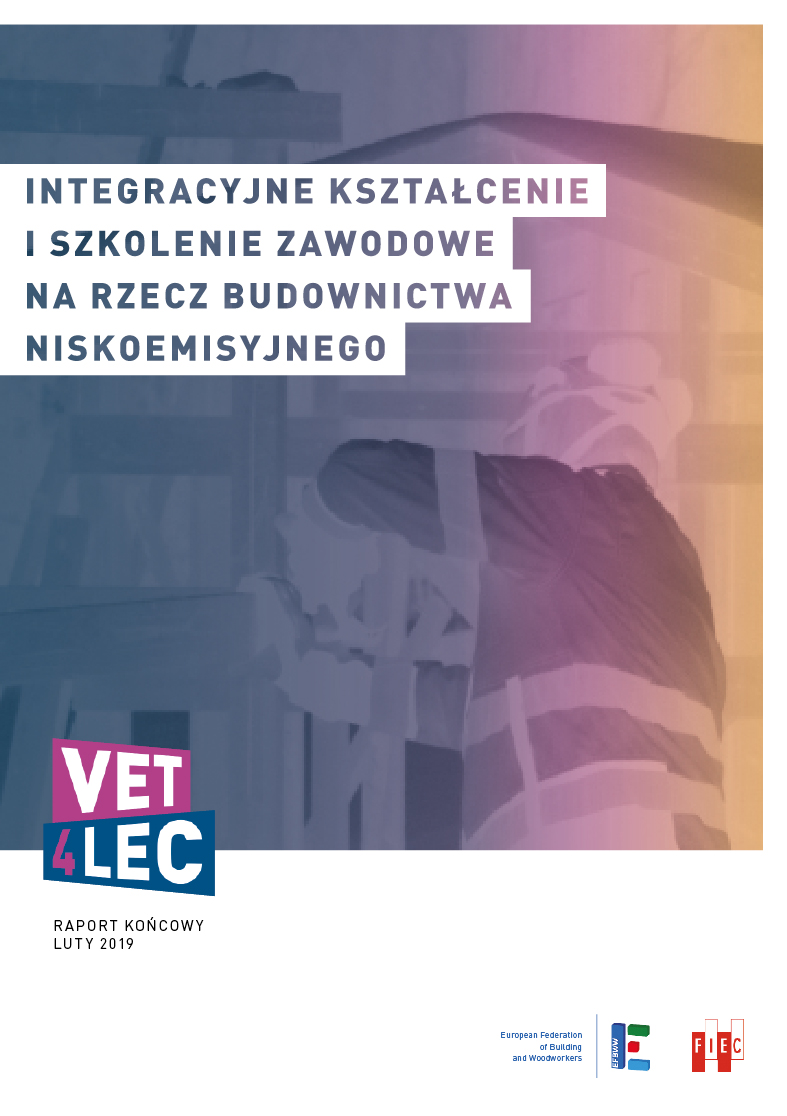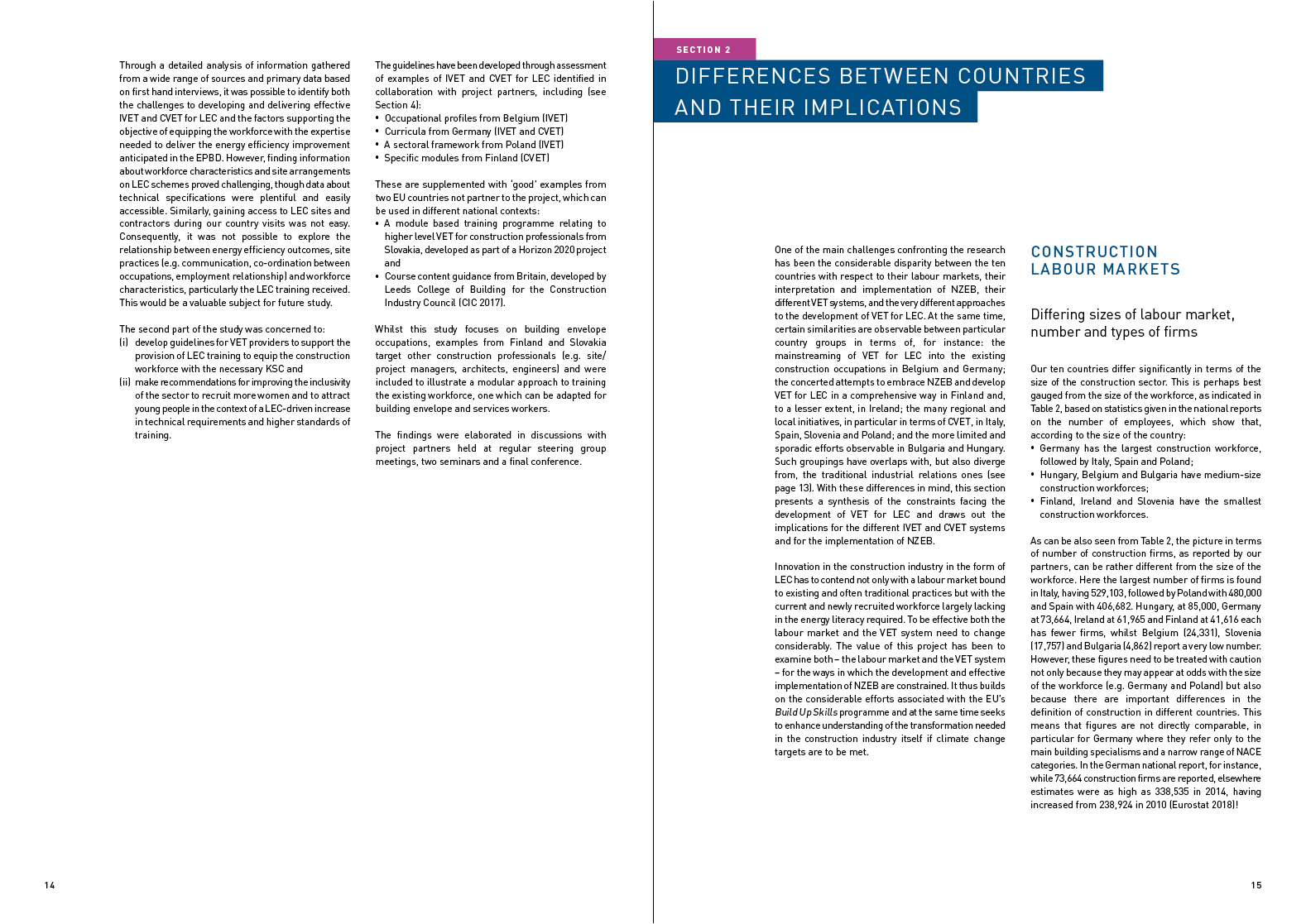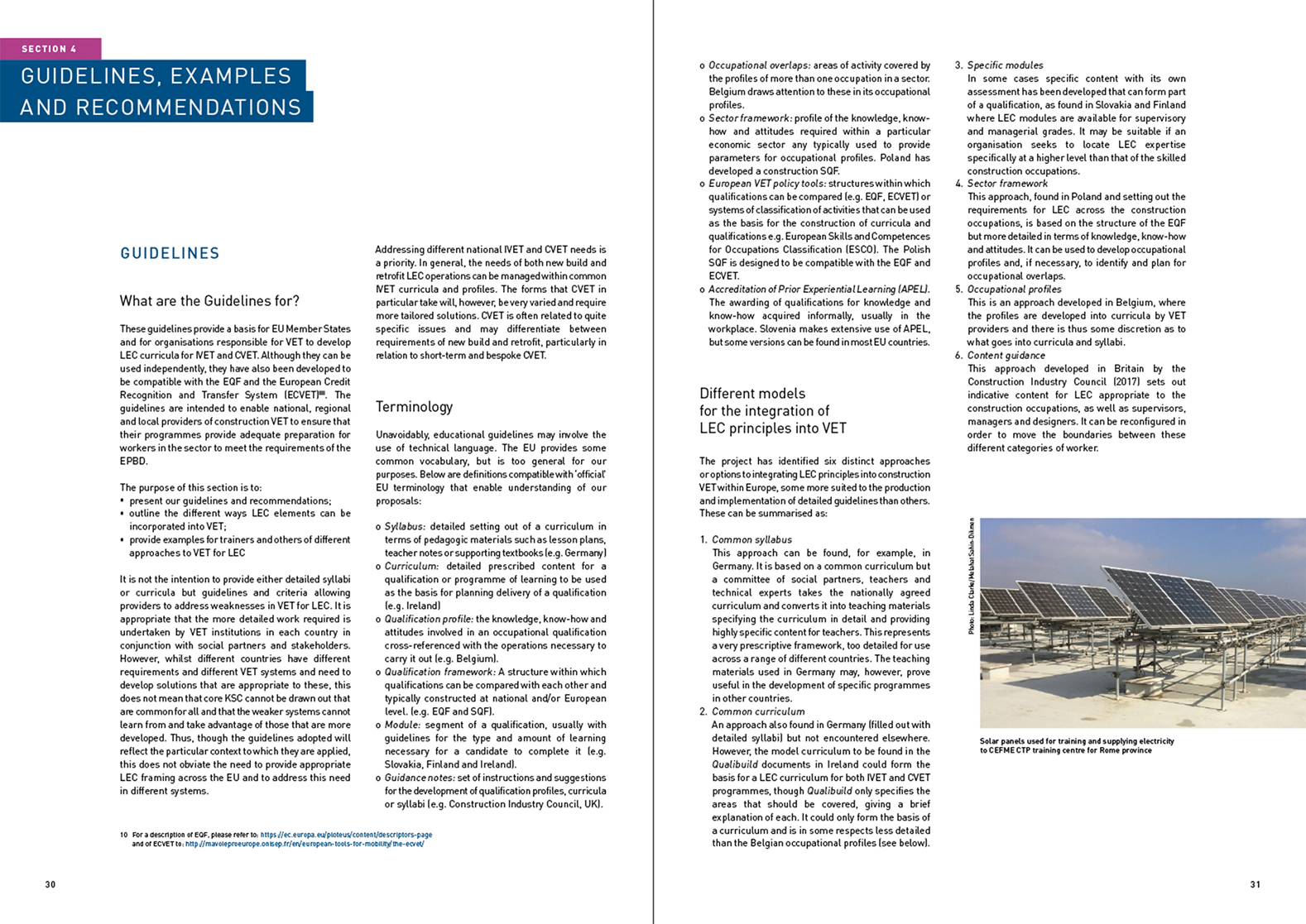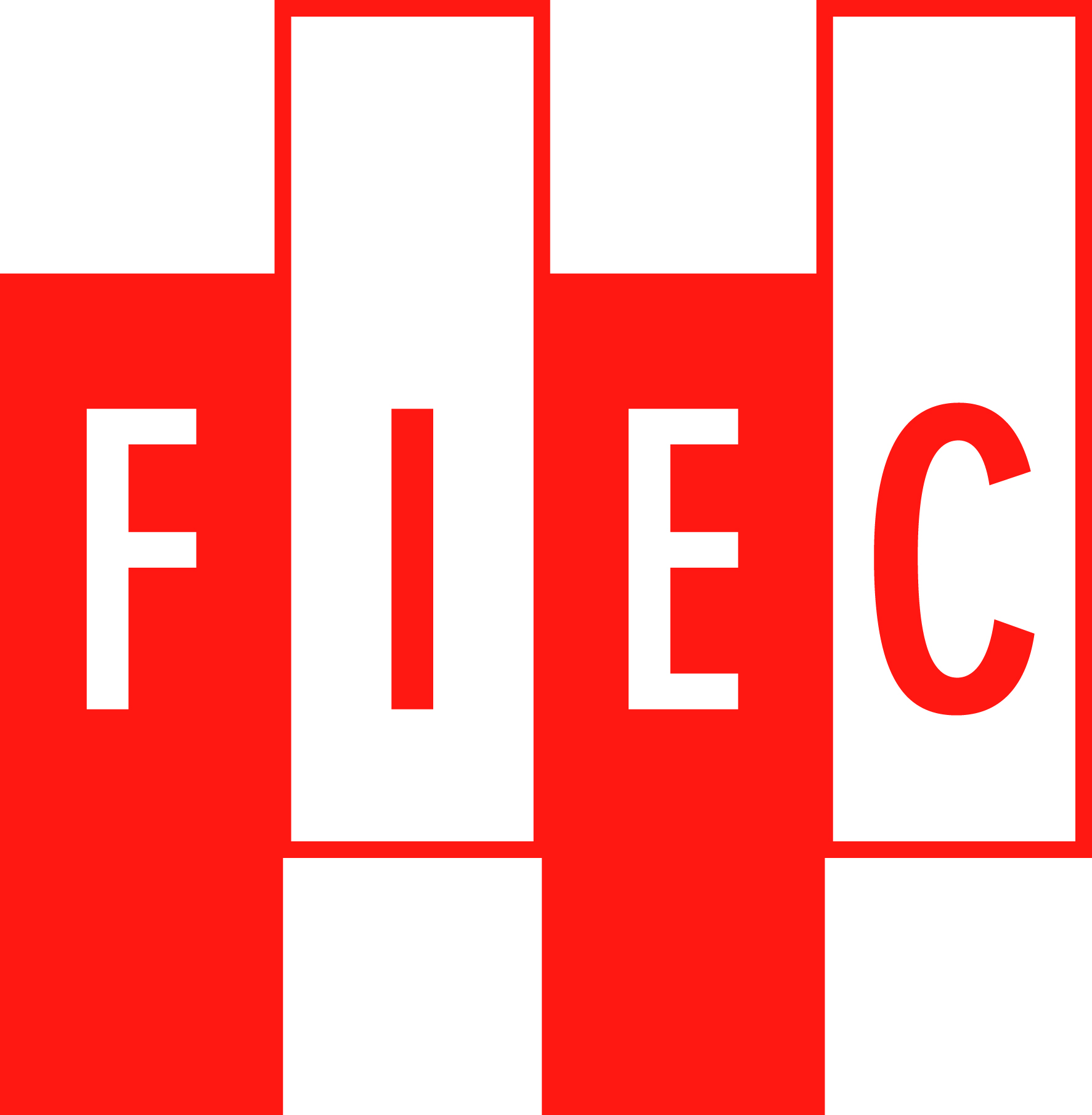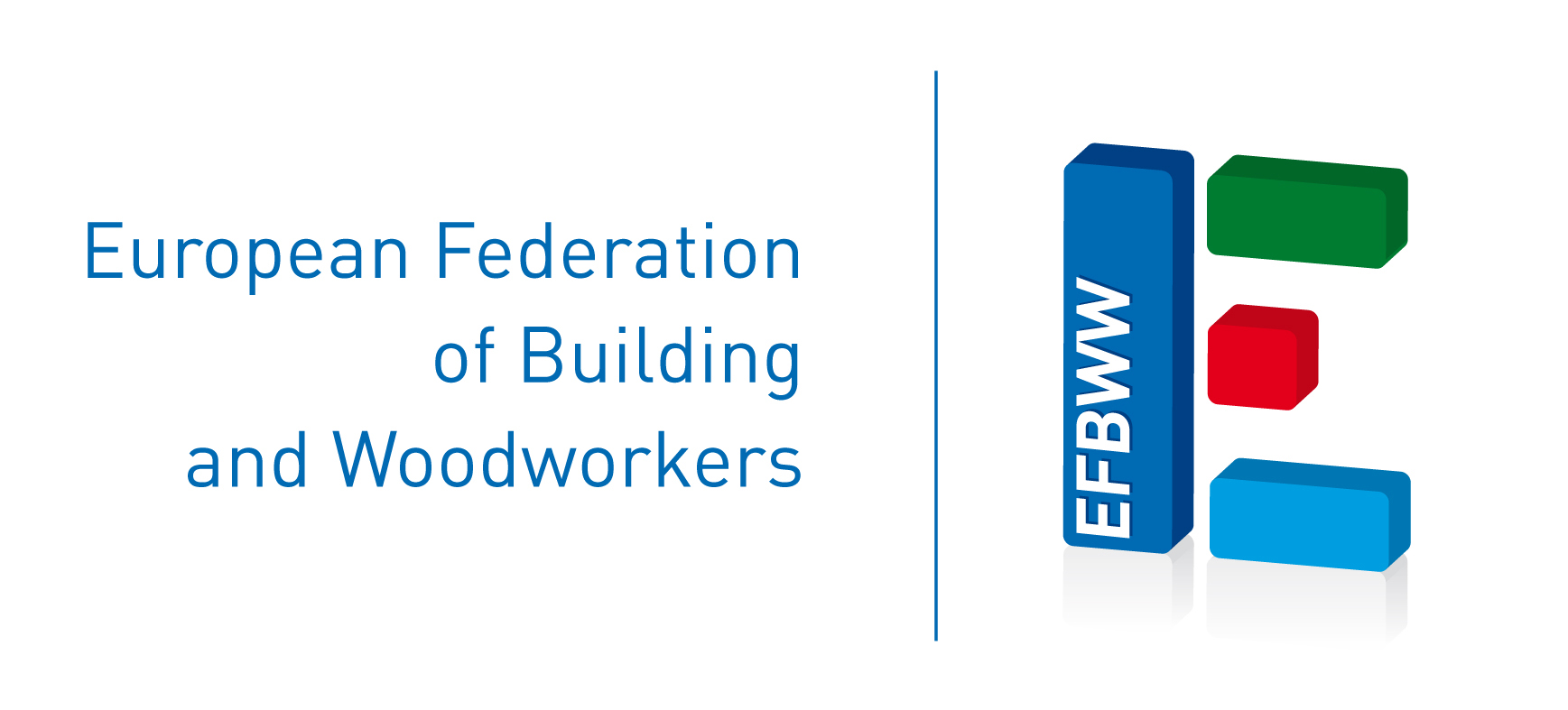Inclusive Vocational Education and Training
for Low Energy Construction
Final Report
Clients:
FIEC, European Construction Industry Federation AISBL
EFBWW, European Federation of Building and Woodworkers
Brussels, February 2019
Published in English, German, French, Italian, Spanish, Bulgarian, Polish
Design, layout
This report presents the findings of a two-year project co-ordinated by the EU sectoral social partners for the construction industry, FIEC and EFBWW, and involving partner organisations from 10 EU countries: Belgium, Bulgaria, Finland, Germany, Hungary, Ireland, Italy, Poland, Slovenia and Spain.
The EU strategy to improve the energy performance of buildings has major implications for vocational education and training (VET) for construction and for the construction labour market across Europe. Meeting the standards of Nearly Zero Energy Buildings (NZEB) depends on an adequately trained workforce, which means that existing VET needs to be adapted to incorporate deeper knowledge and understanding of energy efficiency and higher technical skills. At the same time, the integrated teamwork and holistic approach to the building process required imply a less fragmented and more inclusive labour market.
A wide range of training initiatives is being trialled across the EU as Member States prepare for the transition to low energy construction (LEC). Based on an investigation and evaluation of different approaches to VET for LEC, the report identifies the knowledge, skills and competences needed and presents examples and guidelines of curricula. It provides all the ingredients of a core energy literacy curriculum adaptable to implementation in different VET systems, and compatible with the European Qualifications Framework.

